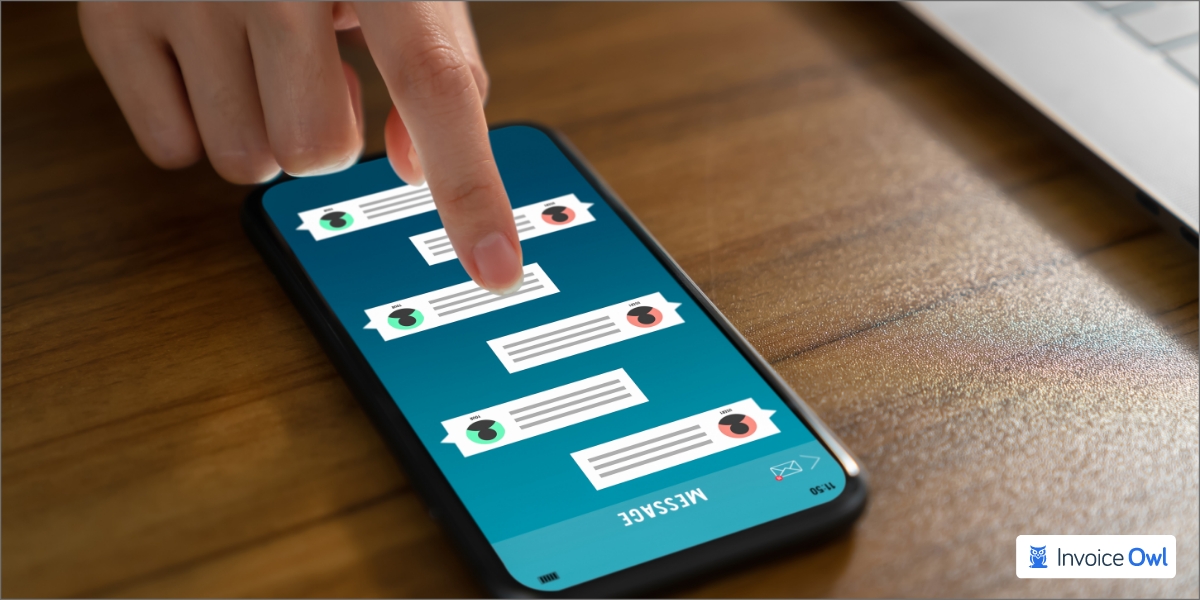
Key Takeaways
- 01Implement a clear cancellation policy in your service contracts to set expectations
- 02Send appointment reminders via text or email to reduce no-shows and cancellations
- 03Maintain a list of customers who need immediate services to fill last-minute openings
- 04Be selective when choosing clients to work with based on their cancellation history
- 05Charge upfront deposits or cancellation fees to make clients more accountable
Nobody likes a last-minute cancellation. So how do you handle last-minute cancellations when you are a professional service provider?
Imagine for a moment: Your service schedule is packed for the next 14 days, and your field service techs are ready to be dispatched. Things are looking good for your monthly ledger until some unexpected last-minute cancellation rolls in. And soon, there was another! Does this sound familiar to you? If this happens quite often with you, then it is certainly problematic.
You're probably out of luck when a client fails to show up or cancels the job within two or three hours of your scheduled arrival. This can significantly impact your monthly revenue and team productivity.
But let's not fret too much! While it is impossible to prevent all last-minute cancellations, you can try to minimize them to a great extent with some fail-safe tips. In this blog, we'll tell you how to deal with last-minute cancellation with some effective tips. Let's dive in!
Tips on How to Handle Last-Minute Cancellation
1. Make a cancellation policy
As you must already know, every customer is unique. One may be on time and punctual, whereas the other client might schedule an appointment but later forget about it completely. That is why you should implement a cancellation policy. Its objective is to minimize when, why, and how a client can cancel an appointment without repercussions.
The following are the few things you must include in your cancellation policy:
A time frame for canceling a service with or without a cancellation fee
Clients are typically given one or two days to cancel their appointments without paying a cancellation fee. Therefore, choose the best option for your company and figure out how much time you would need to acquire new jobs and reschedule your day.
Penalties for last-minute cancellations
Decide whether you want to charge your customer a flat rate (such as 30 USD) or a portion of the service for the cancellation fee.
Contact procedure for last-minute cancellations
Inform your clients how you want to be notified of the last-minute cancellation. It can be via text or email or even a phone call.
A spot for them to sign in the legal document
Your customers must be aware of and agree to your cancellation policies. The policy can be included in the service agreement, quote or estimate, and you must provide a space for them to sign their name with the current date.
Your cancellation policy should be brief and to the point so that clients understand clearly what they're dealing with. Put it on your business webpage, other online service booking pages, or in your booking emails.
2. Send appointment reminders

Sending your client a booking confirmation email is inadequate and unreliable, particularly if they scheduled the appointment a long time ago. Since most people are busy, it can be challenging to keep your appointment at the top of their minds. That is why you must periodically remind them of their booking by sending appointment reminders.
You could send your client email or text message appointment reminders. Email inboxes of people frequently overflow with messages. As a result, text message reminders are more likely to be seen by your clients.
Aside from reminding your clients of their appointments, include your cancellation policy in the text message. You could also include a survey link, a thank you note, or anything else that will help you build a stronger relationship with the client.
3. Prepare customer templates and list
Even when all precautions are taken to avoid a last-minute cancellation, no-shows still take place. However, just because a job is canceled doesn't necessarily mean that you can't get another one set up in its place. Therefore, have a plan in place so that you can fall back on it.
It can be distressing and daunting to receive a cancellation call just a couple of hours before a scheduled service. So, to avoid such situations, make a list of clients who require more immediate services. You probably get calls from customers, from time to time, who ask for quotes or to schedule maintenance jobs right away. However, if things are hectic, you may not be able to fit them into your schedule immediately.
In such cases, ask them if they are willing to be notified if someone cancels. When contacting customers on this list, always try to give them a phone call first. But if you can't reach your customers by phone calls, send them an email or a text message.
Since you want to schedule these appointments in a short time period, switching to automation will be your best bet. Have ready-to-use templates with personalized tags on hand. This way, your staff will save time by eliminating the need to individually customize each message.
Keep the text message concise; explain that an appointment spot has become available and ask if your potential client is available for the slot. If they are, schedule the job on the calendar. If not, go through the customer list again and move on to another customer. In such cases, being proactive is critical. Last-minute cancellations can be uncontrollable, so focus on the factors you can control and make sure you have a reliable plan in place to keep your schedule full.
4. Be selective for every job
Although it may appear that refusing to schedule an appointment with a specific customer is wrong, it is not. That doesn't imply you should avoid scheduling appointments entirely. However, some clients may cause you more damage than good, particularly those who fail to show up or cancel at the last minute on multiple occasions.
When canceling appointments at the last minute and no-shows occur, it is critical to learn from them in order to minimize their occurrence in the future. Therefore, when working with a potential client, it is important to be selective. You, of course, need the job, but it is critical that you stay selective.
Scrutinize your clients ahead of time to see if they are good for your business in the long run. Ask them specific questions to identify how serious a prospective customer is about collaborating with you. Use past experience to assess your lead and use your instinct to determine whether or not they will be as genuine as you.
5. Identify the reason for cancellation
First, determine whether you want to continue working with this client. If so, take into account their behavioral pattern. If they are likely to go for no-shows or last-minute cancellations, there may be a real or perceived discrepancy in their expectations of what you have to provide them.
These expectations are divided into several categories. Take a step back, consider each one, and then approach your customer with your observations. Assessing the underlying perspectives can assist you in getting to the bottom of the problem and dealing with it.
Convenience
Convenience is a critical element when it comes to avoiding last-minute cancellations of meetings or appointments. If you can meet via video call or speak through phone calls, convey that and ensure that the point of contact with you is easy and convenient.
Give your clients the option of using video or just a phone; not everyone feels at ease being on a webcam. Send meeting links at least 48 hours prior, along with guidelines for link testing, so that attendees can resolve any technical issues ahead of the scheduled appointment time.
Availability
Perhaps you have the flexibility of meeting with customers via conference or video calls. If so, think about the days and times of the day you are willing to hold meetings. When you first meet a customer, inquire about their general availability throughout the week and preferred time slots. Make a genuine assessment of your own to see if you can meet their needs.
Expectations

Setting time expectations is absolutely vital because, as the saying goes, time is of the essence. In your contractual agreements, specify your criteria for late cancellations and a no-show policy for meetings. When establishing these, highlight the importance of reliable and consistent interactions in moving projects forward and meeting the expectations of your customers as well.
It's possible that after a period of consistent reliability, existing customers may unexpectedly begin to cancel appointments. They may believe they are no longer benefiting from your work, but don't bring it up to avoid awkward interactions. If you believe this is the case, assess your effectiveness to see if the expectations of your customers are no longer being met. If that's the case, confront them about your concerns and offer solutions to address them.
Pricing
Discussing your pricing model transparently with a customer early on is essential in ensuring that you are collaborating with those who recognize your value and the worth you provide. Still, the financial situation of a customer can change, sometimes unexpectedly. They may be hesitant to inform you that they no longer can afford your services due to the shift in their financial circumstances. This shift could lead to last-minute cancellations first, followed by unpaid or delayed invoices.
Therefore, reviewing your payment terms with your customers twice a year or on a regular basis can provide an advantage to having an honest interaction about what services they can afford.
Make Your Estimates Legally Binding with eSign
InvoiceOwl lets you and your customers sign on the estimates digitally to make them legally binding. Never worry about miscommunication or disputes again.
Start Your FREE TrialFrequently Asked Questions
Here are a few more viable options to help you handle last-minute cancellations:
Charge a deposit in advance: Customers are less likely to cancel an appointment at the last minute if they have pre-paid up to 10–20% for the services they require.
Charge a fee for no-shows and late-cancellation: Fees, like deposits, increase the stakes for the customer. Therefore, customers who provide at least 24 hours' notice allow you to fill the vacancy with another one.
Create a list of blacklisted customers: This is a drastic choice, but including customers who have canceled at the last minute more than a few times on a blacklist could save you trouble in the future.
If a customer cancels at the last minute frequently, asking them to pay an up-front deposit for your services is a wise idea. It is because they will feel more accountable for their booking once they have made advance payments and behave responsibly. Their likelihood of arriving on time will therefore increase. And in case they still cancel on you, you could request a full or partial deposit. Furthermore, if more customers fail to appear for meetings or cancel their appointments at the last moment, the deposits can be used as cancellation fees. In other words, you won't be at a loss in both scenarios.
Your cancellation policy should include: a time frame for canceling without fees (typically 24-48 hours), specific penalties or fees for late cancellations, the preferred contact method for cancellations (phone, email, or text), and a signature line where clients acknowledge and agree to the policy. Make this policy visible on your website, booking pages, and all service agreements.
To reduce no-shows: send appointment reminders 24-48 hours before the scheduled time, require upfront deposits for bookings, implement a clear cancellation policy with penalties, screen clients before accepting appointments, and offer convenient scheduling options like video or phone consultations. Building strong client relationships also helps reduce cancellations.
Get Paid Faster with InvoiceOwl!
The bottom line is that there will occasionally be no-shows and last-minute cancellations. However, the majority of them can be prevented by following the above-mentioned tips. Remember that building a strong relationship with your customers is critical. This will not only increase your customers' respect for you but also benefit your entire business in terms of growth.
Another way to scale your business is to use a digital tool like InvoiceOwl. InvoiceOwl can store and manage your client details, create automated, error-less purchase orders, estimates and invoices and also help you get paid faster.
